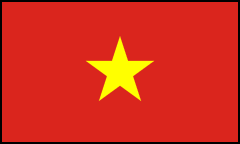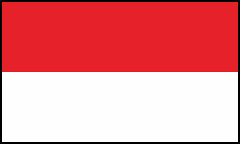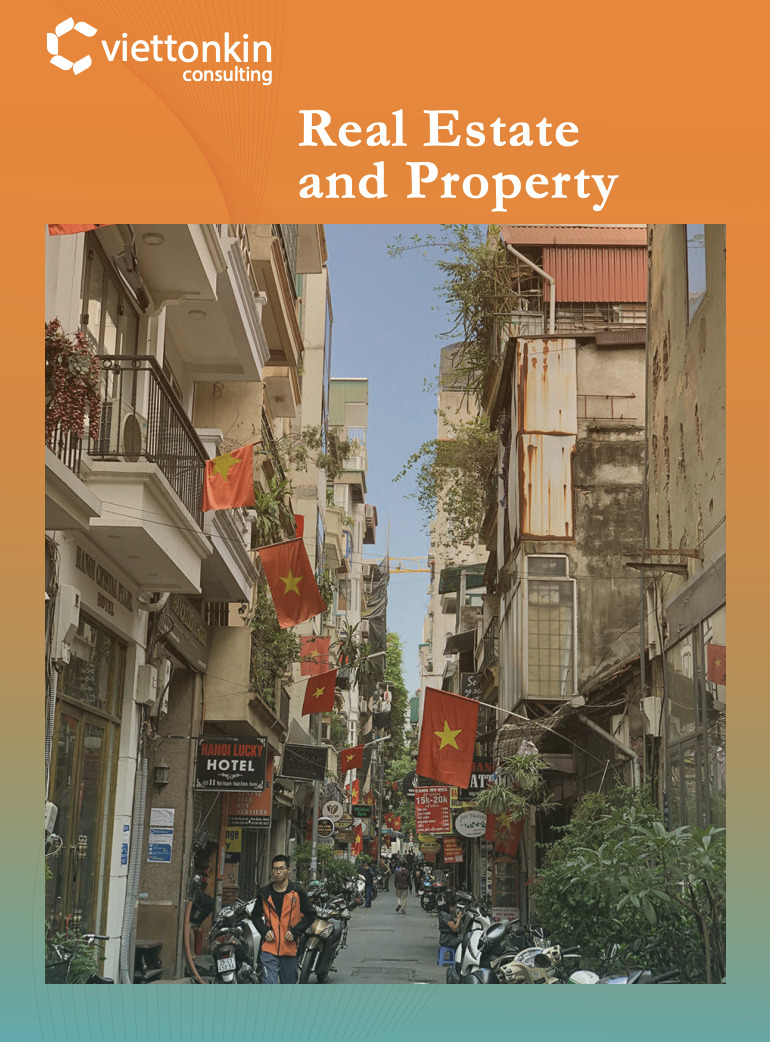With large populations, growing economy, and competitive tax incentives, both Vietnam and Indonesia have emerged in recent years as potential hubs for business and foreign investment. Ever since opening its door to the world in 1986, Vietnam has become one of Asia’s leading exporters. Additionally, the growing cost of labor and trade tariffs in China has redirected investment to Vietnam as a cheaper alternative. On the other hand, Indonesia is proving itself as a strong competitor in attracting foreign investment with its liberalization policy and economic packages. This article provides a broad comparison comparison of doing business in vietnam and indonesia.
Investment potential of Vietnam and Indonesia
- Vietnam’s strong track record
In 2020, the US news and World report ranked Vietnam as the 8th best country to invest in, followed by Malaysia (13th), Singapore (10th) and Malaysia (12th) and China (19th). Rankings were compiled based on results of a global perceptions-based survey among more than 6,00 business decision-makers on attributes such as economic stability, entrepreneurship, tax environment, etc. A total of 125 countries invested in Vietnam in 2019, with Korea ranking first with a total investment capital of 7.92 billion USD, accounting for 20.8% of the total investment capital into Vietnam. By location, Hanoi capital city attracted the most FDI with 22.2% of total investment capital. Until December 20th, the whole country has 30.872 valid projects, mostly focused on the processing and manufacturing sector. Vietnam also began establishing special economic zones (industrial parks) to attract labor-intensive manufacturing in the late 1990s, where 60-70 percent of all FDIs are located.
Vietnam also developed one of the most competitive tax regimes in ASEAN, drawing in investors who might take advantage of the lower costs for doing business in Vietnam and to position themselves ahead of competitors.
Also see: Top locations to set up a business in Vietnam
- Indonesia’s positive prospects
Indonesia continues to offer vast potential thanks to resilient economic growth, low government debt, large young population, and prudent fiscal management. According to UNCTAD's World Investment Report 2020, FDI investment in Indonesia increased by 14% between 2018 and 2019, achieving USD 23,4 billion; while FDI stock reached USD 232 billion in 2019. Indonesia ranks 4th in 2020 as the world best economy to invest in by US News and World Report. FDI growth in the second quarter of 2019 mainly concentrated in electricity, gas and water, transportation and telecommunication.
A set of economic policy packages implemented by the Indonesian government on liberalisation, business certainty, interest rate tax cuts, energy tariffs cuts for labour-intensive industries, tax incentivesfor economic zones, and lowered tax rates on property greatly stimulated FDI growth. Investors are shifting towards Indonesia as a potential FDI hub for its increasing political and economic stability.
According to Indonesia Investment Coordinating Board (BKPM), investment in the first quarter of 2020 increased by 8% compared to the same period in 2019. Top five countries investing in Indonesia include Singapore, China, Hongkong, Japan, and Malaysia, with FDI from SIngapore totalling 6.527 billion USD in the first quarter of 2020, accounting for 23.1% of the total investment capital.
See also: Foreign Direct Investment in Indonesia
Foreign Ownership limitations
- Vietnam
Vietnam is the second country after Singapore that aggressively negotiates Free Trade Areas (FTAs) with ASEAN members and other foreign blocs such as EU. The FTAs provide preferential tariffs and investment protections, which are incentives to foreign investors. Compared to Indonesia, Vietnam is more open towards FDI with less restrictions and greater incentives. According to Vietnam Law on Investment and Vietnam WTO’s Commitments, it is allowed to set up entirely foreign-invested businesses in Vietnam in most sectors. For example, trading, IT, and manufacturing welcome FDI. Some business lines such as tourism and advertising, however, require a Vietnamese joint venture partner.
There are several types of legal entities allowed for foreign investors in Vietnam, the most common of which include Limited Liability Company (LLC), Joint stock company (JSC), and Representative office. In most sectors it is also possible to register a branch of a foreign company. Business incorporation is regulated by the DPI (Department of planning and investment).
SEE MORE: What are the Types of Legal Entity in Vietnam
Vietnam law does not explicitly require a minimum amount of investment capital in setting up a company. However, the Department of Planning and Investment will assess the amount of capital contribution and see whether it corresponds to the planned expenses of the company. To set up a company in Vietnam, however, you would need a local registered address.
- Indonesia
Starting a business or legal entity in Indonesia can be hazardous to foreigners who lack profound experience with the country and do not have useful contacts or networks. Indonesia is not the world’s most business friendly country, which is reflected by the World Bank Index. Investors wishing to set up a partially or wholly foreign-owned company in Indonesia should consider the regulations on foreign ownership regarding the line of business.
There are two legal entities permitted for foreigners in Indonesia: a foreign investment limited liability company (PT PMA) and a representative office (KPPA). Under Law No. 25 of 2007 regarding on Investment, any form of direct foreign investment in Indonesia must be in the form of a limited liability company. Company incorporation requires approval from BKPM (the Capital Investment Coordinating Board) and relevant authorities for certain industries.
Limited liability company must generally comply with the following:
- Allowed activities: all business activities related to the sector it is engaged in and received approval from BKPM.
- Foreign ownership restriction depends on the business lines set out in the Negative Investment list.
- Minimum capital: USD 680,000
- All shareholders, directors and commissioners eligible for work permit, unlimited amount of business visa sponsorships, work permits can be issued to foreign experts.
The most up-to-date 2016 Negative Investment list includes business fields that are restricted to foreign investment. Fields reserved for investment by or partnership with domestic enterprises include construction consultancy services at less than USD 700,000. Fields open for partial foreign ownership include internet service, professional training courses, distribution and warehousing, department stores with retail space of 400 to 2,000 sq. meter, general sale agencies for foreign airlines.
Representative office has less requirements for operation; however, its activities are restricted to market research, networking… and forbidden from marking profit/revenue or engaging in sales.
See also: Facts about entity format in Indonesia
Other factors in doing business
- Major types of Taxes
Most business activities and investments in Indonesia and in Vietnam will be affected by the following taxes:
- Corporate Income Tax
- Individual Income Tax
- Value Added Tax (VAT)/ Sales Tax
- Withholding Tax
- Social Insurance, Unemployment Insurance ad Health Insurance Contributions
General corporate income tax rate is 25% in Vietnam and 20% in Indonesia. With businesses operating in the petroleum, gas and natural resources sector, the tax rate is 32 - 50% for companies in Vietnam with at least 40% of its shares traded on the stock exchange.
Both Indonesia and Vietnam use a progressive individual income tax rate between 5% - 30% and a flat rate of 20% for non-residents. Sales tax in both countries is 10%.
- Labour
Vietnam’s minimum wage is slightly below that of Indonesia, at $130-190 per month compared to $240-300. However, the availability of labour skill in Vietnam is comparatively low and concentrated in major cities, which is a limitation to businesses in niche sectors such as IT.
- Number of holidays
Compared to Indonesia (20 holidays), Vietnam had 9 holidays less in a year, meaning it has 9 more working days. Additionally, Vietnamese people do more working hours a day than in any ASEAN country.
- Political stability
Vietnam has proven over time to be a politically stable country. Indonesia has had several political unrest in Jakarta and Papua. A stable country offers foreign investors a supportive legal framework, predictability, and assurance of longevity.
- Natural disasters
While Most areas in Asia are prone to natural disasters, Vietnam’s industrial centers are mostly safe from the destruction of natural disasters.
To sum up, there are various advantages and disadvantages associated with each country in terms of foreign investment, business incorporation, and conducting business. Depending on the industry and line of business, priorities may vary and it is advisable to assess all criteria before doing business in Vietnam and Indonesia. Our VietTonkin experts with longstanding presence in both countries are always available to assist you along the way.







